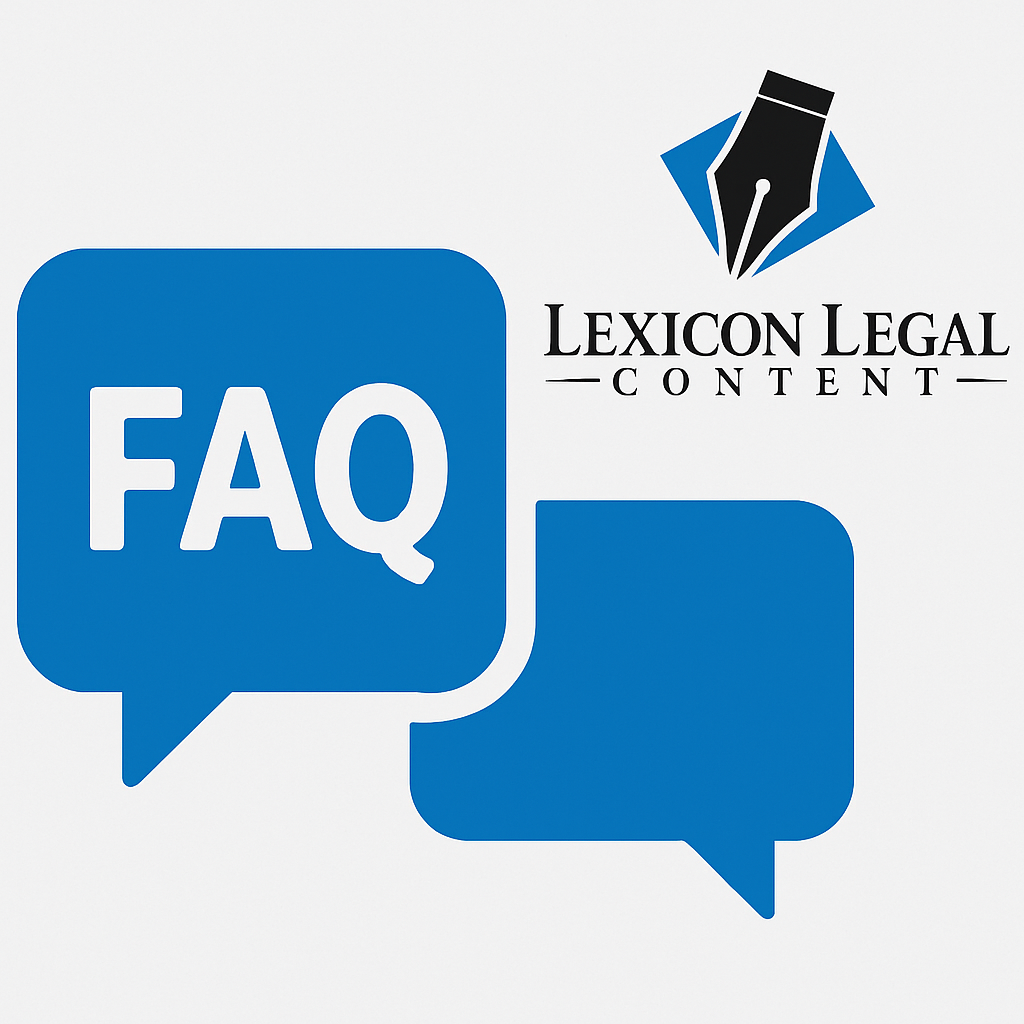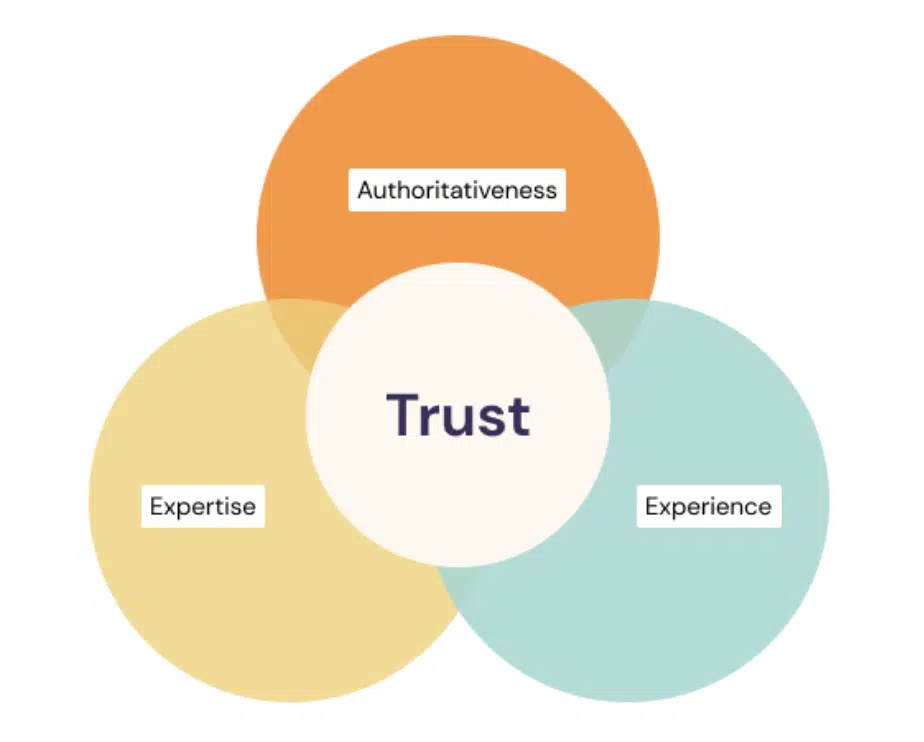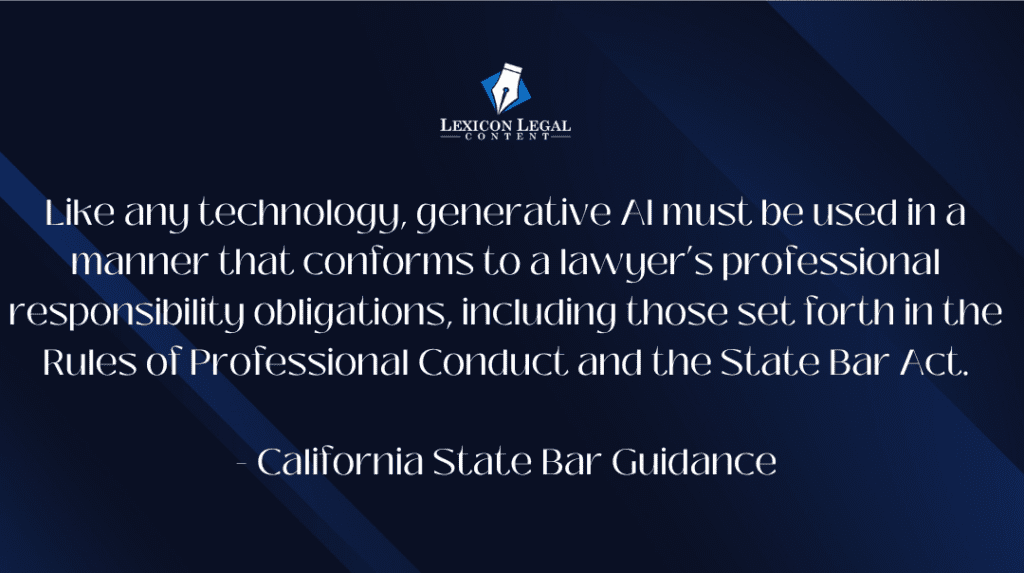Most law firms struggle with a fundamental problem: their marketing content doesn’t convert prospects into clients. The reason? Generic marketing agencies treat legal content like any other industry, missing the nuanced expertise that separates mediocre law firm websites from those that dominate search results and client acquisition
Most law firms struggle with a fundamental problem: their marketing content doesn’t convert prospects into clients. The reason? Generic marketing agencies treat legal content like any other industry, missing the nuanced expertise that separates mediocre law firm websites from those that dominate search results and client acquisition.
Since founding Lexicon Legal Content in 2012, we’ve created thousands of pieces of content that establish our clients as leaders in their practice areas. This success stems directly from our attorney-owned approach. Our co-founder, Erin Fitzgerald, Esq., practiced law in Missouri for several years before launching Lexicon, bringing real courtroom experience and legal expertise to every piece of content we create.
The Critical Gap in Traditional Law Firm Content Writing
When law firms outsource their content to general marketing agencies, they often receive well-written but legally shallow material. These agencies excel at crafting readable copy with proper keyword density, but they fundamentally misunderstand what potential legal clients actually need to see. The result is content that might check SEO boxes but fails to demonstrate the legal authority that converts prospects into paying clients.
Generic content writers typically produce articles that lack legal accuracy and depth. They miss the industry-specific terminology that clients actually search for when they need legal help. More problematically, they often create compliance risks by providing inaccurate legal information or making claims that violate legal advertising rules.
Why Attorney Ownership Makes the Difference

Attorney-owned law firm content writing services bring something that generic agencies simply cannot replicate: actual legal expertise combined with marketing knowledge. When practicing attorneys create content for other law firms, they understand both the legal nuances that matter to potential clients and the strategic elements that drive search rankings.
This dual expertise delivers several key advantages:
- Legal accuracy that builds trust – Content includes precise terminology, relevant case law, and accurate explanations that demonstrate genuine expertise
- Real-world insight – Writers understand which questions prospects actually ask and which legal concepts cause the most confusion
- Compliance awareness – Content adheres to legal advertising rules and ethical guidelines that generic writers often overlook
- Conversion optimization – Material guides prospects toward consultation requests while providing genuine legal value
Consider the difference between a generic writer explaining personal injury law versus an attorney who has actually handled hundreds of personal injury cases. The attorney knows which questions prospects really ask, which legal concepts cause confusion, and how to explain complex processes in ways that build trust rather than create more uncertainty.
The SEO Advantage of Legally Accurate Content
Search engines increasingly reward content that demonstrates expertise, authoritativeness, and trustworthiness. For legal content, this means Google strongly favors websites that showcase genuine legal knowledge over keyword-stuffed articles written by non-attorneys who learned about law from Wikipedia.
Attorney-created law firm content writing naturally incorporates precise legal terminology that prospects actually use when searching for help. It references relevant case law and legal precedents that boost authority signals. Most importantly, it provides accurate explanations of complex legal processes while maintaining the readability that both search engines and potential clients demand.
When an attorney writes about statute of limitations issues, they don’t just regurgitate generic information. They understand the exceptions, the nuances between different types of cases, and the practical implications that actually matter to someone considering legal action. This depth of knowledge translates into content that search engines recognize as authoritative and prospects find genuinely helpful.
Common Law Firm Content Writing Mistakes That Kill Rankings
Many law firms unknowingly sabotage their search rankings through predictable content mistakes. They write overly generic topics like “personal injury law” instead of addressing specific, searchable questions like “what happens if I was partially at fault in my car accident.” They provide incorrect or outdated legal information that damages their credibility with both search engines and potential clients.
Local optimization represents another common failure point. Law firms often miss opportunities to incorporate location-specific legal requirements and local search terms that could dramatically improve their visibility for “lawyer near me” searches. They create content that educates but provides weak or nonexistent calls-to-action, missing opportunities to convert educated prospects into consultation requests.
Perhaps most damaging is inconsistent publishing. Many firms start strong with content creation but quickly abandon regular publishing schedules. This sporadic approach prevents them from building the topical authority that search engines reward with higher rankings.
How to Evaluate Law Firm Content Writing Services
The legal industry requires a different approach to content evaluation than other industries. When selecting a content partner, law firms should prioritize services that offer:
- Actual legal expertise – Writers with legal backgrounds who understand your practice areas deeply and can create content that resonates with both search algorithms and potential clients
- SEO integration without compromise – Technical optimization that maintains legal accuracy and readability rather than sacrificing substance for rankings
- Compliance awareness – Understanding of legal advertising rules and ethical guidelines that generic marketing agencies often ignore
- Conversion-focused strategy – Content designed to educate prospects while strategically guiding them toward consultation requests
- Industry specialization – Experience creating content specifically for law firms rather than applying generic business content templates
The best law firm content writing services understand the unique challenges of legal marketing. They know how to optimize content without compromising the legal precision that builds trust with prospects. They also understand the client journey in legal services and create content that addresses concerns at each stage of the decision-making process.
The ROI of Professional Law Firm Content Writing
Quality legal content writing delivers measurable returns that extend far beyond basic website traffic. Higher search rankings for competitive legal keywords translate directly into increased visibility when potential clients need legal help. More importantly, attorney-created content typically achieves better conversion rates because it addresses real legal concerns with authoritative answers.
The long-term value of professional law firm content writing often exceeds the immediate traffic benefits. Well-crafted legal content continues generating leads months or even years after publication. It builds your firm’s reputation and authority in specific practice areas, creating compound returns on your content investment.
Consider how potential clients evaluate law firms online. They don’t just want to know that you handle their type of case—they want evidence that you understand their specific situation and can handle it effectively. Attorney-written content provides this evidence in ways that generic marketing copy simply cannot match.
Building Your Content Strategy for Maximum Impact
Successful law firm content writing requires strategic thinking beyond individual blog posts. The most effective approaches involve creating comprehensive content hubs around core practice areas that establish genuine topical authority. Rather than scattered articles on random legal topics, strategic content development focuses on thoroughly covering specific areas of law where your firm wants to attract clients.
Local market focus becomes crucial for most law firms since legal services remain fundamentally local businesses. Developing location-specific content that captures “lawyer near me” searches while addressing local legal requirements can dramatically improve both rankings and lead quality.
Understanding the client journey in legal services helps create more effective content strategies. Potential legal clients typically progress through distinct research phases, from initial problem recognition to attorney selection. Creating content for each stage of this process ensures you’re visible and helpful throughout their decision-making journey.
Moving Beyond Generic Marketing to Legal Expertise
The legal industry demands content that transcends surface-level marketing approaches. Potential clients can instinctively distinguish between genuine legal expertise and generic business content, and search engines increasingly reward authentic authority over keyword manipulation.
Attorney-owned law firm content writing services bridge the gap between legal knowledge and digital marketing effectiveness. They create content that ranks well in search results while actually helping potential clients understand their legal options. This dual purpose positions your firm as both visible and credible—exactly what converts prospects into clients.
When you invest in content created by attorneys who understand both legal practice and digital marketing, you’re building more than just website traffic. You’re creating a digital foundation that demonstrates your expertise, attracts qualified prospects, and converts visitors into clients through the combination of genuine legal authority and strategic optimization that only attorney-owned services can provide.

Frequently Asked Questions About Law Firm Content Writing
How often should law firms publish new content?
Consistency matters more than frequency when it comes to law firm content writing. Most successful firms publish 4-12 high-quality pieces per month rather than churning out daily posts. The key is maintaining a regular schedule that allows for thorough research and legal accuracy while building topical authority over time.
What’s the difference between attorney-written content and SEO content?
Attorney-written content combines legal expertise with SEO best practices, while generic SEO content focuses primarily on keyword optimization without legal substance. Attorney-owned law firm content writing services ensure that every piece demonstrates genuine legal knowledge while still ranking well in search results.
How long does it take to see results from legal content marketing?
Most law firms begin seeing improved search rankings within 3-6 months of consistent, high-quality content publication. However, the conversion benefits often appear sooner as prospects find and engage with authoritative content that addresses their specific legal concerns.
Can generic marketing agencies really handle legal content effectively?
While general marketing agencies can create readable content, they typically lack the legal expertise necessary to produce material that truly converts prospects into clients. They often miss crucial legal nuances, use incorrect terminology, or create compliance risks that attorney-owned services naturally avoid.
What practice areas benefit most from professional content writing?
All practice areas benefit from expert law firm content writing, but competitive areas like personal injury, criminal defense, and family law see particularly strong returns. These fields require content that demonstrates both legal expertise and local market knowledge to stand out from competitors.
How do you measure the success of legal content marketing?
Success metrics include improved search rankings for target keywords, increased organic traffic, higher consultation request rates, and enhanced online reputation. The most successful law firm content writing campaigns track both traffic metrics and actual client acquisition from content-driven leads.
About the Author: David Arato, JD, is a graduate of St. Louis University School of Law. Since founding Lexicon in 2012, David and his team have created thousands of pieces of content for law firms and law firm marketing agencies throughout North America.






